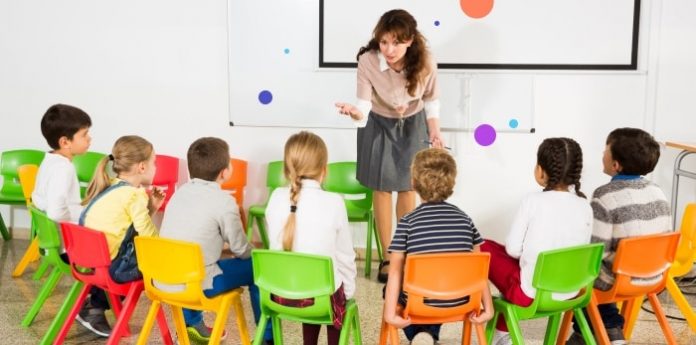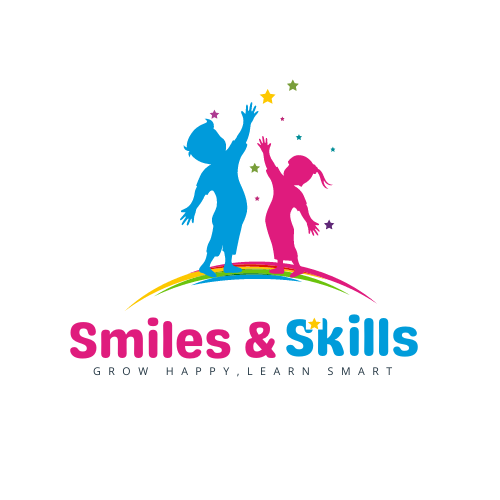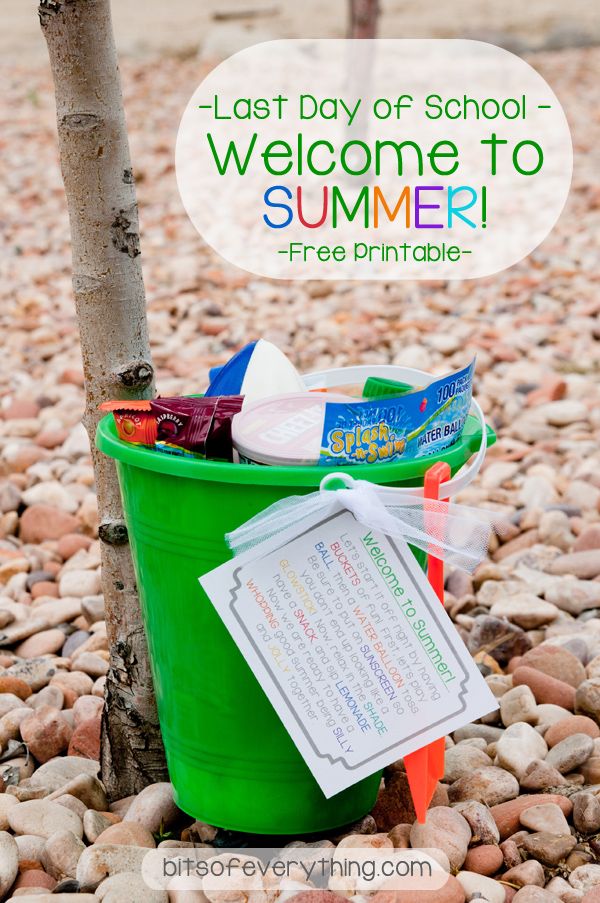Preschool first day activities should engage students, encourage creativity, and ease any separation anxiety. Activities such as name games, arts and crafts, and storytelling can help create a welcoming and inclusive environment for the children.
The first day of preschool is a momentous occasion for both children and parents. It sets the tone for the entire school year, and as such, it’s important to plan engaging and interactive activities to make the transition as smooth as possible.
With the right combination of fun and educational activities, children can feel excited and comfortable in their new environment while developing important social and cognitive skills. By incorporating games, arts, and storytelling into the day, educators can create an environment that helps foster a love of learning while easing any anxiety.
Importance Of First Day Activities
The first day of preschool can be a daunting experience for both children and parents. It’s a significant milestone that signals the beginning of formal education and sets the tone for the school year. Therefore, the importance of first day activities cannot be overstated. These activities play a crucial role in creating a positive and welcoming environment that helps children ease into the new setting, build relationships with peers, and develop a sense of belonging.
Setting The Tone For The School Year
First day activities are instrumental in establishing the atmosphere and expectations for the rest of the school year. They provide an opportunity for teachers to introduce themselves, share classroom rules and routines, and initiate activities that foster a sense of community among the children. By engaging in purposeful and enjoyable activities from the outset, children are more likely to feel excited about learning and forming connections with their peers, making the first day a memorable and enjoyable experience.
Easing Separation Anxiety
For many children, the first day of school can evoke feelings of separation anxiety as they navigate the new environment without their parents. Purposeful first day activities can help ease this anxiety by providing a nurturing and supportive setting for children to acclimate to the classroom and the new faces around them. These activities can include games, storytelling, and interactive play, designed to build trust and confidence, and promote a smooth transition from home to school. By engaging in these activities, children can gradually overcome their apprehensions and feel more comfortable in their new environment.
Interactive Ice Breakers
Interactive icebreakers are a fantastic way to help preschoolers get to know each other and feel more comfortable on the first day of school. These activities encourage socialization and create a positive, welcoming environment. Here are some engaging interactive icebreakers that will help preschoolers feel excited and connected.
1. Name Game
The Name Game is a fun way for preschoolers to learn each other’s names. Arrange the children in a circle and start by saying your name followed by an action or a sound. For example, “My name is Lily Clap.” Then, each child takes turns repeating the previous names and actions before saying their own. This not only helps them remember names but also gets them moving and engaged with each other.
2. Show And Tell
Show and Tell is a wonderful way for preschoolers to share something special with their classmates. Encourage each child to bring in a favorite toy, book, or item from home. They can take turns presenting their item, and explaining why it’s important to them. This activity fosters self-expression and allows children to learn more about each other’s interests and personalities.
Creative Arts And Crafts
Engaging preschoolers in creative arts and crafts activities is an excellent way to kickstart their first day of school. These activities not only foster creativity but also enhance fine motor skills and hand-eye coordination. Let’s explore some exciting creative arts and crafts ideas for First Day of School.
3. Handprint Art
Handprint art is a wonderful way to help preschoolers leave their mark on the first day of school. It’s a simple yet memorable activity that allows them to express themselves while creating a lasting memento. To create handprint art, provide washable, non-toxic paints in various colors. Guide the children to dip their hands into the paint and press them onto a piece of paper to create unique designs and patterns. This activity not only encourages creativity but also serves as a special keepsake for both parents and children.
4. Collage Making
Collage-making is a versatile and engaging activity that allows preschoolers to explore their creativity and imagination. Provide a variety of materials such as colored paper, fabric scraps, buttons, sequins, and stickers. Encourage the children to create their own collage by arranging and gluing the materials onto a base such as cardstock or cardboard. This activity promotes fine motor skills, color recognition, and spatial awareness. It also provides an opportunity for children to express themselves through art and design, fostering a sense of accomplishment and pride in their work.
Circle Time Fun
Circle time is an engaging and interactive part of the day for preschoolers. It’s a time for children to come together, share experiences, and participate in various activities that promote learning and social development. During circle time, educators can incorporate storytelling sessions, singing, and dancing to create a dynamic and lively atmosphere for the little ones.
5. Storytelling Sessions
Storytelling sessions during circle time captivate young minds and foster a love for literature from an early age. Through captivating narratives and colorful illustrations, preschoolers are transported to magical worlds, igniting their imagination and enhancing language skills. Teachers can use props, puppets, or interactive storytelling methods to make the experience even more engaging and memorable for the children.
6. Singing And Dancing
Integrating singing and dancing into circle time not only adds an element of fun but also promotes physical activity and rhythm awareness. Preschoolers eagerly participate in singing rhymes, action songs, and simple dances, which not only uplifts their mood but also enhances their coordination and motor skills. Incorporating educational songs that teach counting, alphabet, or body parts adds an extra dimension of academic reinforcement to the joyous singing and dancing sessions.
Outdoor Exploration
Engaging in outdoor exploration activities on the first day of preschool allows children to connect with nature and unleash their curiosity. It provides an opportunity for them to learn through hands-on experiences and sensory engagement. Below are some Outdoor Exploration activities that you can incorporate into your preschool’s first day to stimulate the children’s sense of wonder and foster a love for the outdoors.
7. Nature Scavenger Hunt
Organizing a nature scavenger hunt can help preschoolers connect with the natural world around them. Create a list of items such as pinecones, colorful leaves, flowers, and rocks for the children to find. Encourage them to use their observation skills and natural curiosity to search for these items. This activity promotes a sense of discovery and teaches the children about the different elements of the environment.
8. Sensory Play
Engaging in sensory play outdoors can greatly benefit preschoolers. Set up stations with materials such as sand, water, mud, or natural objects like feathers and pine needles. Allow the children to explore these elements using their senses of touch, sight, and smell. This hands-on experience promotes cognitive development, sensory exploration, and creativity.

Credit: www.splashlearn.com
Parent Involvement
Parent involvement on the first day of preschool is crucial for a smooth transition and a positive experience for the child. These activities encourage parents to bond with their children and become familiar with the preschool environment, teachers, and other parents.
9. Welcome Breakfast
A welcome breakfast is a great way to kick off the first day of school. It provides an opportunity for parents, children, and teachers to mingle and get to know each other. This provides a comforting atmosphere for children and helps parents feel more connected to the preschool community.
10. Classroom Tour
A classroom tour allows parents and children to explore the learning environment together. This is a vital opportunity for parents to learn about the different areas of the classroom and understand how their children will spend their time. It also gives parents a chance to ask teachers any questions they may have about the daily schedule and routine.
Classroom Organization
The first day of school for preschoolers can be both exciting and overwhelming. Creating a well-organized classroom environment is crucial for a successful start to the school year. An efficiently organized classroom allows for smooth transitions, maximizes learning opportunities, and ensures a positive experience for both the children and the teacher. Here, we will discuss how the classroom organization can be optimized to create an engaging and productive learning space for preschoolers.
11. Learning Centers
Learning centers are essential in a preschool classroom as they provide a structured way to engage children in various educational activities. To maintain an organized environment, it’s important to designate specific areas for different learning centers such as literacy, math, science, art, and sensory play. Each center should be clearly labeled and equipped with appropriate materials. This not only facilitates easy access to resources but also encourages independent exploration and learning. It’s advisable to create a rotating schedule for children to explore different learning centers throughout the week, promoting a well-rounded educational experience.
12. Daily Schedule
An organized daily schedule is essential for preschool classroom management. A consistent routine helps young children feel secure and comfortable, allowing them to anticipate what comes next. The schedule should include a balance of structured activities, free play, snacks, and outdoor time. It’s important to display the daily schedule in the classroom using visual aids such as pictures or icons to help non-readers understand the sequence of events. This clarity creates a sense of structure and order, reducing anxiety and enhancing the learning experience for preschoolers.
Inclusive In-class Games
Creating an inclusive environment in preschool is crucial to ensuring that all students feel welcome and engaged. In-class games can be a great way to promote inclusivity and provide opportunities for every child to participate and have fun. Here are a couple of inclusive in-class games that are perfect for the first day of school in preschool.
13. Animal Charades
Animal Charades is a fun and interactive game that encourages creativity and imagination. This game is perfect for the first day of school as it allows children to express themselves through physical movements and sounds. To play, write the names of different animals on small cards and have each child pick a card. They then take turns acting out the animal without speaking, while the rest of the class guesses what animal they are pretending to be. This game not only promotes inclusivity but also helps children develop social and communication skills.
14. Musical Chairs
Musical chairs is a classic game that can be adapted to be more inclusive for preschoolers. Instead of removing a chair each round, consider using cushions or soft mats on the floor to ensure no child is left out. Play lively music and encourage the children to move around the chairs or cushions. When the music stops, they quickly find a spot to sit. This game promotes inclusion by allowing all children to participate and have fun, regardless of their physical abilities.
Frequently Asked Questions For First Day Of School Activities For Preschool
What Are Some Fun First Day Of School Activities For Preschoolers?
Engaging preschoolers with icebreaker games, story time, art activities, and group singing can create an exciting and comfortable environment.
How Can I Help My Preschooler Feel Comfortable On The First Day Of School?
Establish a morning routine, talk positively about school, introduce the teacher beforehand, and provide a transition item to help ease any separation anxiety.
What Are Some Ways To Prepare My Preschooler For The First Day Of School?
Engage in role-playing to familiarize them with the school routine, read books about starting school, encourage independence, and discuss their feelings and expectations.
Conclusion
Incorporating these first-day-of-school activities for preschoolers fosters an engaging and enjoyable start to the academic year. By integrating play-based learning and interactive experiences, children can build confidence, social skills, and a positive attitude toward education. These activities set the stage for a successful and fulfilling preschool journey.

